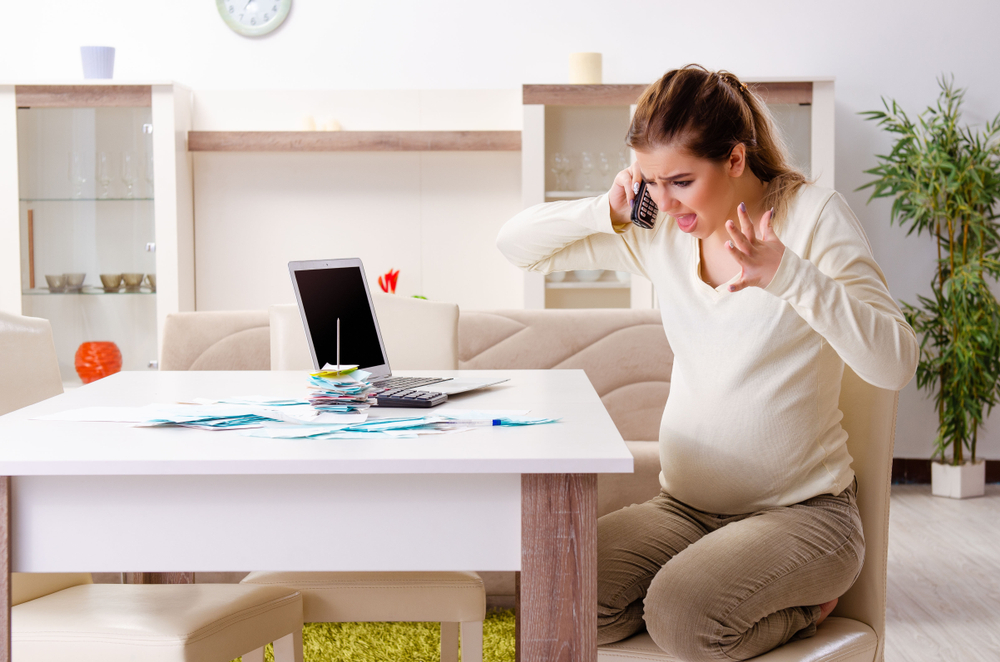Pregnancy was a real shock. Not that it happened, but how physically challenging it was. Many of the cutesy sayings that accompany building another human inside your own body disguise the real experience.
For example, the phrase “morning sickness.” This is the equivalent of calling diabetes something like “sweet blood.” It is the sickest I have ever felt, for the longest period of time. When I finally had enough to ask a doctor about it at a regular appointment, he gave me a dry response: “That’s what being pregnant is.”
Yes, from a man who would never feel that “morning sickness” himself, which for me was dry heaving outside of the metro at 8:45am on a weekday morning while everyone around you thinks you are drunk, but instead, you are going to your OBGYN to be told that this is what pregnancy feels like.
Despite my monthly appointments, no one mentioned the FDA-approved drug for morning sickness. Why? Who knows. Maybe their practice didn’t like it. Maybe you have to complain 10 times to be given that information, and I only complained 9 times. But had I known about it, I would’ve asked for it. Instead, I muddled on.

I am fortunate. Pregnancy was my first experience of feeling sick for a long time, and it showed me how lacking information and media can be for people navigating health challenges. Especially challenges that are shoved into the category of “women’s health.”
This was, naively, a surprise to me. I spent over a decade as a reporter and editor covering Washington, mostly health policy. I covered several bills that made big changes to the FDA. If I didn’t know how to find better information on the health issues affecting me, who would?
It’s Not Just a Pregnancy Problem. It’s Parenting Postpartum and Beyond.
This cycle repeated itself in postpartum – no way to tell normal “baby blues” from postpartum depression, whether wincing pain from nursing was normal or an infection, whether clusterfeeding meant my daughter was still hungry or just agitated. And then again in toddlerhood and beyond: introducing solid foods, sleep training, potty training, whether biting at daycare is normal.
There are no perfect answers to most of these questions. What works for one child may not work for another. But when I looked for guidance, I found articles that quoted an expert or two that often said, definitively, “here’s what will work.” And when I looked at multiple articles, I got information that contradicted itself. It was rarely presented as if there could be a range of answers, different schools of thought, or experts who disagree on what to do next.
I am not alone in this experience. A 2015 study from an early childhood advocacy group of 2,200 parents found that 84% were reading articles that aimed to help them, but only 49% found them helpful. And 58% said there was so much parenting information available that they don’t know who to trust.
As parents are struggling to find good information, they also feel judged about how they are raising their children. A staggering 90% of moms and 85% of dads in the survey said they felt judged by others, and nearly half said they felt that judgement “all of the time or nearly all the time.”
You Can Handle the Truth! (Or That There Is No Perfect Answer)
Which brings me back to the question posed in the title: What are we doing here? We are changing that.
Maternie was founded to get the best, evidence-based, scientific information to parents so they can make the right decision for their families. We started with a focus on childcare, but my heart has always been pulled towards something bigger. The problem is not just missing information on childcare, it is missing everywhere.
We deserve to know where there are and aren’t perfect answers. Where experts disagree. Where there’s no right or wrong way of doing something. And when evidence backs something up or doesn’t. My theory is that we don’t get this information now because it takes more work to collect and synthesize it. But I suspect there is also an assumption that it will stress us out or overwhelm us.
I think we can handle it. And contrary to the idea that we can’t handle it, it will build our confidence and alleviate the guilt and frustration that can come when that “one trick” you learned from an article, a parent on Facebook, or your own extended family utterly fails.
So that’s what we are doing here. We are writing *nonjudgmental* guides on parenting questions, scouring expert sources and research to give you a quick overview of what verified information is out there, and where there might be divergent opinions.
Here are a few recent examples:
- How to Deal With a Young Child Who Lies
- How Does Sleep Training Affect (Screaming and Stubborn) Toddlers?
- How to Tell if its ADHD or Normal Kid Energy
All of our content is free now as we build up our platform. We will begin charging a subscription fee to access our guides once we reach a critical mass. But our goal will be to always give free access to any caretakers with children who qualify for Medicaid or the Children’s Health Insurance Program (CHIP).
If this mission speaks to you now and you want to get on board early, subscribe here.


